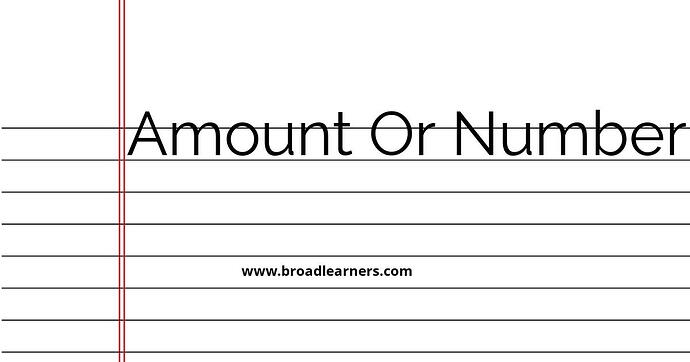'Amount' and 'number' are commonly confused words in English grammar. Understanding the difference between 'amount' and 'number' is important to use them correctly in written and spoken English.
'Amount' is used to refer to uncountable nouns or quantities that cannot be easily counted. It is used to describe a quantity of something that cannot be divided into separate units.
'Number' is used to refer to countable nouns or quantities that can be easily counted. It is used to describe the total count or quantity of something that can be divided into separate units.
Let's take a closer look at the meanings and usage of 'amount' and 'number'.
| 'Amount' | 'Number' |
|---|---|
| The word 'amount' is used for uncountable nouns or quantities. | The word 'number' is used for countable nouns or quantities. |
|
|
To remember the difference between 'amount' and 'number', it can be helpful to remember that 'amount' is used for uncountable nouns and 'number' is used for countable nouns.
Here are some examples of correct usage:
- I need a small amount of flour for the recipe. (referring to an uncountable quantity)
- There are a number of students in the class. (referring to a countable quantity)
- She has a large amount of money in her bank account. (referring to an uncountable quantity)
- We have a large number of tasks to complete. (referring to a countable quantity)
Remembering the correct usage of 'amount' and 'number' will improve your grammar and communication skills.
